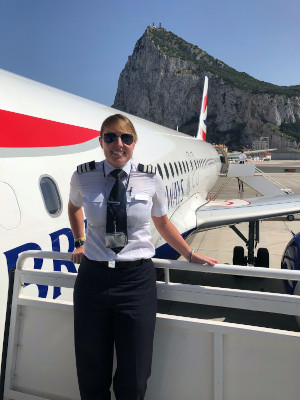What was the best thing about being a student?
Not only was the University of Birmingham a top university to study at, with great lecturers and facilities, but there were so many extra-curricular activities available. As a very sporty person, when making my choice about universities the sporting facilities were very important to me, in particular the squash club. At UoB, the Munrow (the former sports centre at the University) was exactly what I needed, if not more, and I am very jealous that I wasn’t still at Birmingham when the new sports centre opened. I was a squash club member throughout my time at UoB. It was great to have something different to do other than study, giving me a chance to compete to a very high level in the BUCS competitions and also make some very close friends along the way. As an undergraduate student I also joined what I believe to be one of the best-kept secrets at university, the University Air Squadron (UBAS). This is an organisation funded by the Royal Air Force, giving students opportunities to fly, go on expeditions, play sports competitions and take part in many other military activities as part of the RAF Reserves. Particular highlights for me were competing at the RAF ski championships, having the honour of taking the salute from the Head of the Air Force at the RIAT gala dinner, and hanging from a Sea King helicopter above the North Sea off the coast of Scotland. They’re not really what you’d call normal student experiences!
How did you grow as a person by coming to university?
Even in just my first year at university it was apparent how much my confidence grew, together with other skills such as communication and teamwork. One of the main things I saw about myself was how determined I am and, how with enough hard work, you can turn bad situations into positive ones. For instance, after my undergraduate degree, I lost a graduate scheme job with BT. Rather than move back home, I researched the PTNR Masters and within a week I had organised myself an interview. At the time, losing the grad scheme felt like the end of the world. However looking back now it is probably the best thing that ever happened to me, giving me the motivation to better myself academically and apply for the BA future pilot programme. While interviewing for the BA post, I had to utilise skills that I’d gained at university such as planning, team work, problem solving and time management. In the same week as my final assessment day for BA, I had a computing project and lab report to submit. This was obviously a stressful time, but with prior planning and good time management, both projects were completed and ensured I attended my assessment day confident in my preparation.
What advice would you give to current students?
The PTNR course involves a thesis project in the summer to complete the masters. One thing that I would encourage people to do is to apply for the projects that are available in industry, as opposed to staying in Birmingham. The university course is well regarded within the nuclear industry and there are many projects available for study. To the best of my knowledge, I am the only PTNR masters student in my year who did not progress to a career with their placement organisation. This is a course I would highly recommend.